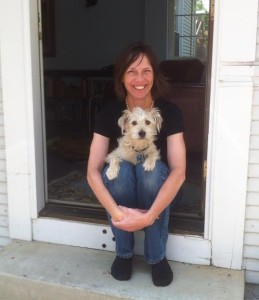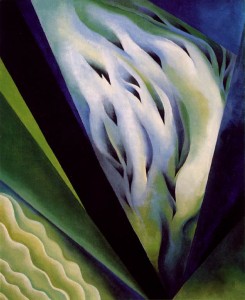I live with journalist Matt Weiser. We talk about books and writing a lot of the time. Lately we’ve been comparing notes on how the process of writing straight news contrasts with composing poems and essays. Below is a piece of the conversation from Sunday, February 2, 2014.
~Alexa Mergen, author of Cells of Solitude
Alexa: It’s Sunday morning and news broke on your beat. You spent much of the day writing a story for The Sacramento Bee. What’s it like as a writer to turn an event into a story within hours?
Matt: Even though I have a deadline, I have to forget about that. Worrying about how little time I have will just be a preoccupation and get in the way of everything I have to do.
What’s it like for you to work without an event, and produce a poem without a deadline?
Alexa: Events for me occur in a moment: an image of a neighbor looking at a bird, or a line that lands from nowhere in my ear. I have to allow these things to ripen in their own time. Some poems, the rare ones, are written in hours. Others have taken me decades.
In a decade, you write thousands of news stories reaching millions of people. What’s it like to have so many readers? We poets are fortunate if a few see our words.
Matt: Sometimes it feels like a big responsibility. It’s also a privilege. But it also feels very anonymous at times. That’s because with the kind of writing I do I don’t really form a personal bond with the readers. Instead we bond around these news events that affect us all but are often kind of fleeting.
When you’re writing a poem, how do you come up with images that are lasting, and how do you make them resonate for your readers?
Alexa: Actually writing a poem is a tiny part of the process of making a poem. Most of the work is preparation. I intentionally make myself permeable so that my senses are heightened. The images end up being both particular and universal, hopefully lasting, because of this willingness to feel. Through practice, you learn the skill of how far to stretch an image in the poem and how images work together.
How do you make a news story lyrical so that the writing flows even as you are conveying facts ordered logically?
Matt: I remind myself to include details that can be felt by the senses. That means how something looked, what the weather was like or something about a person’s behavior. And I also use direct quotes from the people I interview to convey emotion and convey the fact that these are real people speaking.
You are a heavy reader of news stories. What is it about writing essays and poetry that makes them different lyrically from journalism?
Alexa: In writing essays and poems, I’m not at all bound by linear time. Both essays and poems can occur as spirals of recursive ideas or, as in this r.kv.r.y essay, “Cells of Solitude,” like strung beads. Sound, rhythm, pattern, images and connotation link ideas together in poems. Whereas when I read a news story, I want all the information to be firmly grounded in the present of current events and situated in a historical context.



Pingback: Cells of Solitude | Rkvry Quarterly Literary Journal